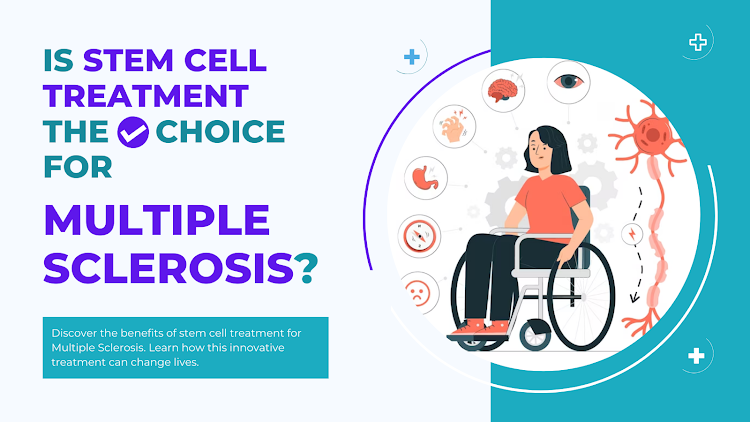Introduction
Multiple Sclerosis is a complex and debilitating condition that impacts the lives of millions worldwide. Managing its symptoms and progression has been a long-standing challenge. We will explore the potential of stem cell therapy as an innovative and effective approach to address the issues associated with MS.
Understanding Multiple Sclerosis
Multiple Sclerosis is an autoimmune disease that affects the central nervous system, disrupting the flow of information within the brain and between the brain and the body. This disruption leads to a wide range of symptoms, including vision problems, muscle weakness, balance issues, and cognitive difficulties. Traditional treatment approaches, such as medications, physical therapy, and lifestyle adjustments, have limitations in managing the disease effectively.
Stem Cell Treatment Explained
Stem cell therapy involves the use of specialized cells that have the potential to develop into various cell types in the body. These cells can be used to repair damaged tissues and promote the regeneration of healthy cells. In the context of MS, stem cell therapy aims to halt the progression of the disease and alleviate its symptoms.
Benefits of Stem Cell Treatment for MS
The benefits of stem cell therapy for MS are substantial. Studies and clinical trials have shown promising results, with many patients experiencing improvements in their symptoms and quality of life. Compared to traditional treatments, stem cell therapy offers a more comprehensive approach to managing the disease.
- Reduced Inflammation: Stem cell therapy can help reduce the inflammation that causes damage to the central nervous system in MS patients.
- Improved Mobility: Many individuals with MS experience difficulties with mobility. Stem cell therapy can enhance motor function and coordination.
- Enhanced Quality of Life: Patients often report an improved quality of life after undergoing stem cell therapy, with a reduction in symptoms and an increased ability to perform daily tasks.
- Long-lasting Effects: Unlike some treatments, the effects of stem cell therapy can be long-lasting, providing relief for an extended period.
- Safe and Minimally Invasive: Stem cell therapy is a safe and minimally invasive procedure, with a relatively low risk of complications.
Conclusion
In conclusion, stem cell treatment offers a new ray of hope for those battling Multiple Sclerosis. With its potential to improve symptoms and halt the progression of the disease, it's a choice that deserves serious consideration. It may well be the right choice for Multiple Sclerosis.








No comments:
Post a Comment